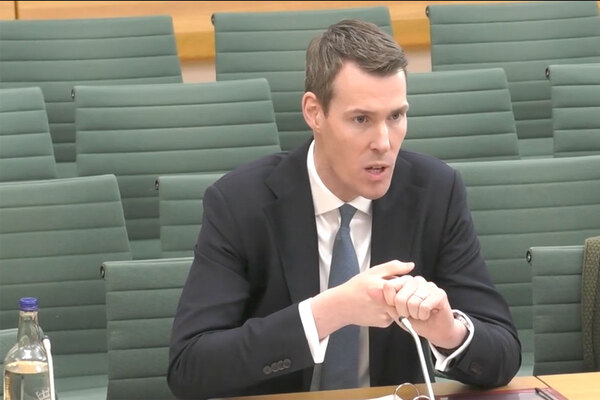Case study: why residents refuse access for repairs
With more stringent regulation and the spotlight on disrepair, particularly damp and mould, social landlords will be looking to survey and get into more homes to carry out repairs. But why do tenants sometimes refuse access? Grainne Cuffe looks into one instance to find out what lessons can be learned
The Housing Ombudsman’s latest Spotlight report on data management highlighted that the issue of tenants refusing access is often more complicated than it first seems.
Blame is placed on tenants when landlords cannot get in to do a repair or survey, when sometimes they have not examined the underlying reasons for the refusal. This can lead to “daily detriment” to tenants, according to the ombudsman, and wasted resource for social landlords.
Here, Inside Housing looks at one tenant’s story.
Jane* (name has been changed) is a resident of Saffron Housing Trust. For months, she and her landlord were stuck at an impasse. Saffron wanted access to the property to carry out a total property management (TPM) survey, which was several years overdue.
But Jane did not want to let them in, resulting in a stand-off that led her to being her served with legal letters and Saffron unable to complete work on her home.
She has now given the landlord access without the courts being involved. The process carries an important lesson for the sector about the importance of rebuilding trust.
Asked why she refused access to Saffron, Jane says her prior experience meant she did not trust them to do the work appropriately.
Jane has been a Saffron tenant since 2004 and moved into her current home in 2009. Over the years, she says she has asked her landlord to do several repairs – such as fixing the uneven path to her home, blocked guttering, repairing a smoke alarm and a large crack in an internal wall – which had not been completed.
The ombudsman made a finding of maladministration against Saffron in 2016 after investigating a complaint from Jane after she experienced “unacceptable” delays in repairs to a leak. It also ordered Saffron to pay the tenant compensation.
On this, Saffron says it has “implemented learnings” from the finding and “worked with tenants to design a new approach to scrutiny, communication and involvement – creating a new tenant-led community membership structure together”.
Jane, who is disabled, explains that in 2021, workers had come to replace her boiler, which then began leaking. Despite repeatedly asking for someone to come and fix the issue, Jane was left without heating and hot water for two months.
By this stage, and as a result of the leak, damp and mould permeated her home, some of which remain. Jane says many of her belongings were ruined as a result. There is still mould in her kitchen and pantry, which has become worse because of the blocked gutters.
Jane has had a persistent cough since August 2021, which is around the time the damp and mould appeared. She has received no apology or compensation.
Jane also says she has not received a compensation form or a copy of Saffron’s damp and mould policy.
She adds that when she tried to escalate her complaint to Stage 2, she was told that something was wrong with her initial complaint.
Until very recently, the housing association had not surveyed Jane’s home in 14 years, just before she moved in.
A letter to her in December, seen by Inside Housing, said such surveys should be done every six years.
In the letter, Saffron informed Jane that the TPM inspection is an “essential service” that it is required to be completed to make sure its stock is “safe and benefitting” from improvements.
“It is therefore a condition of your tenancy that reasonable access is allowed,” the landlord said.
For months, Jane did not feel comfortable giving access.
Janes says that she wanted an acknowledgement of what she has been through and for Saffron to take responsibility for its prior actions before granting access.
“This anger and frustration hasn’t happened overnight. They keep threatening me with an injunction if I refuse to let them in. I don’t want to let them in, they come in, destroy your home and they take no responsibility for it,” she explains.
She adds: “I would just like them to take responsibility for themselves and treat people with some respect.
“That made me really unwell. Not just physically, but mentally as well.
“They continually quote me policies and procedures when they don’t actually abide by them themselves.”
Jane complained to the Housing Ombudsman last year about the issues and is awaiting a response.
Saffron say that where access has been allowed, “all repairs reported to us have been completed”. Although, Jane disputes this.
In early May, Jane decided to allow the landlord into the home for the TPM survey. She had a family member present and had her front door measured to be replaced.
She explains that she eventually consented to the inspection because she began liaising directly with Lynne Riddoch, director of tenant services at Saffron, who was more responsive than another senior staff member who Jane felt she was getting nowhere with.
“If Saffron can do the work without further damaging my property, that would be appreciated. I feel I’ve waited long enough for Saffron Housing to do what they’re meant to do contractually as my landlord,” she says, adding that she hopes the work will be complete within three months.
Ms Riddoch, who was present during the inspection, says: “There were times when [Jane’s] experience of Saffron fell short of what we are trying to achieve, and for this we are very sorry.
“We recognise that we have work to do to earn [her] trust and this is something we are committed to.
“Following a discussion with [Jane], we have recently completed a total property management survey in her home and are keen to carry out the work it identified quickly and effectively and are working with [her] to do this.”
It takes a lot of trust to allow anyone to enter your home. This can be lost. Where possible, building it up again is a better solution for both residents and landlords than legal action. Getting there can be possible with the right approach to communication.
Sign up for our asset management newsletter
Already have an account? Click here to manage your newsletters












